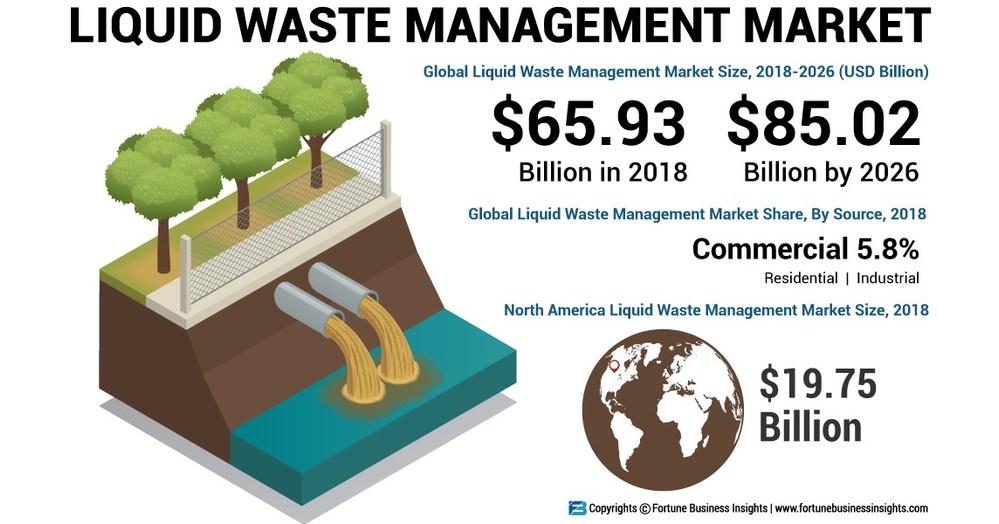A Biased View of Reclaim Waste
A Biased View of Reclaim Waste
Blog Article
Reclaim Waste Can Be Fun For Anyone
Table of ContentsHow Reclaim Waste can Save You Time, Stress, and Money.Everything about Reclaim WasteReclaim Waste Things To Know Before You BuyReclaim Waste Fundamentals Explained5 Simple Techniques For Reclaim Waste
Residential sewage waste refers to the waste and items from a household septic tank. The correct administration and disposal of residential sewage waste need fluid waste to be transferred to a sewer therapy plant where the proper approaches and tools are used to cleanse and dispose of waste.
Commercial waste typically consists of potential dangers, such as combustible products or a mix of fluid and strong waste products, and needs a more innovative and comprehensive disposal procedure. The disposal of business waste normally entails the filtration of waste before transportation to guarantee secure and appropriate disposal. Hazardous waste is developed from byproducts and overflow of industrial procedures and manufacturing.
This kind of waste can not use the same sewage management transportation or procedures as septic or industrial liquids. The hazardous waste administration procedure needs the inspection and screening of fluid waste before it undergoes the disposal process (industrial wastewater treatment). Runoff waste is the liquid waste that originates from runoff and excess stormwater in extremely populated locations or cities
Drainage waste can create contamination and flooding if not handled correctly. Discover more regarding drain cleaning and waste administration. Making sure appropriate waste management can stop calamities and minimize environmental harm. Both individuals in household settings and professionals in commercial or manufacturing industries can profit from recognizing the procedures and laws of liquid waste monitoring.
The Greatest Guide To Reclaim Waste
Contact PROS Solutions today to learn more about our waste management and disposal solutions and the proper methods to take care of the liquid waste you produce.
(https://www.mixcloud.com/reclaimwaste1/)Do you recognize what takes place to your water when you pull the plug, flush the commode or drain the washing maker? No? Well, it deserves understanding. This supposed 'wastewater' is not only a vital resource yet, after treatment, will certainly be launched to our land, waterways or the ocean. Utilized water from commodes, showers, baths, cooking area sinks, laundries and commercial processes is called wastewater.

water used to cool machinery or clean plant and tools). Stormwater, a type of wastewater, is runoff that moves from agricultural and urban areas such as roof coverings, parks, yards, roads, paths and gutters into stormwater drains pipes, after rainfall. Stormwater streams untreated straight to regional creeks or rivers, eventually getting to the ocean.
The 8-Minute Rule for Reclaim Waste
In Queensland, most wastewater is dealt with at sewage treatment plants. Wastewater is carried from residential or industrial websites with a system of drains and pump terminals, called sewage reticulation, to a sewer therapy plant. Regional federal governments build, maintain and operate most sewage treatment plants. Operators are accredited under the Environmental Management Act 1994 to release cured wastewater at an appropriate ecological standard into rivers.
The Department of Natural Resources advises regional governments concerning handling, operating and keeping sewerage systems and therapy plants. In unsewered areas, neighborhood governments might call for owners to mount specific or household sewage therapy systems to treat domestic wastewater from toilets, kitchens, shower rooms and laundries. The Division of Natural Resources authorises making use of household systems when they are confirmed to be effective.
In some brand-new communities, treatment of some stormwater to remove trash, sand and crushed rock has begun using gross toxin catches. Wastewater treatment takes place in 4 stages: Removes solid issue.
Makes use of small living microorganisms understands as micro-organisms to damage down and remove continuing to be dissolved wastes and great particles. Micro-organisms and wastes are integrated in the sludge.
The smart Trick of Reclaim Waste That Nobody is Talking About
Nutrient removal is not available whatsoever sewer treatment plants because it needs expensive specialised equipment. It is becoming more typical in Queensland. Clear liquid effluent produced after therapy may still include disease-causing micro-organisms. If this effluent is released into waterways such as rivers or the sea, the micro-organisms will eventually die out.

This normally indicates wastewater has to be treated or contaminants gotten rid of before it can be discharged to rivers. The majority of wastewater moves into the sewage system. Under additional hints the Act, local governments carry out approvals and permits for ecologically pertinent activities (Periods) including wastewater releases that could have a local influence. The department carries out authorizations and licences to Periods including wastewater launches that may have a regional or statewide influence.
7 Easy Facts About Reclaim Waste Described
Surveillance offers valid info concerning water quality and can confirm that licence conditions are being met. The information gotten via surveillance gives the basis for making water high quality decisions.
Report this page